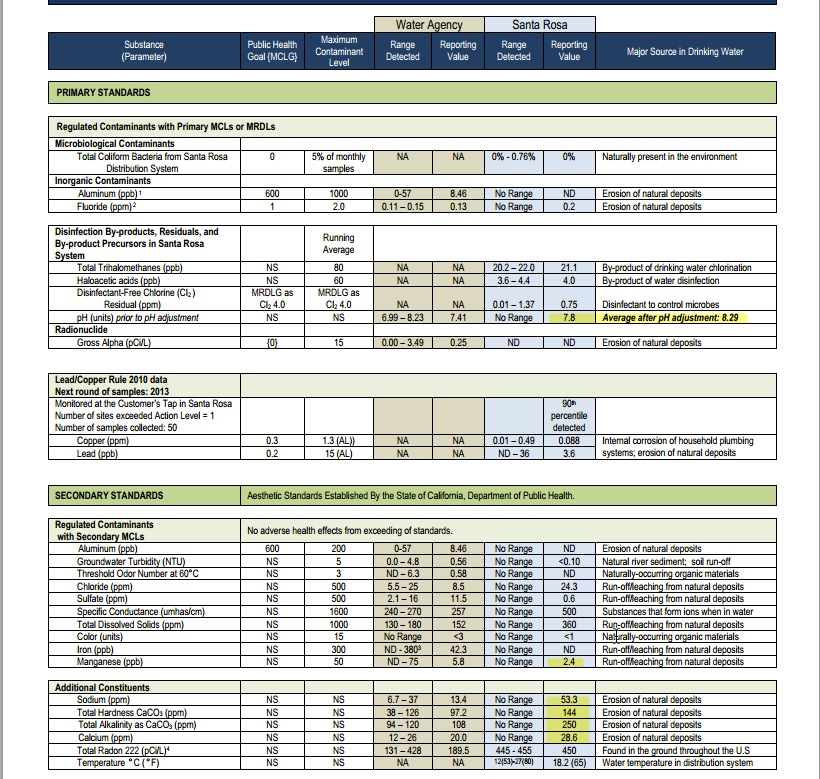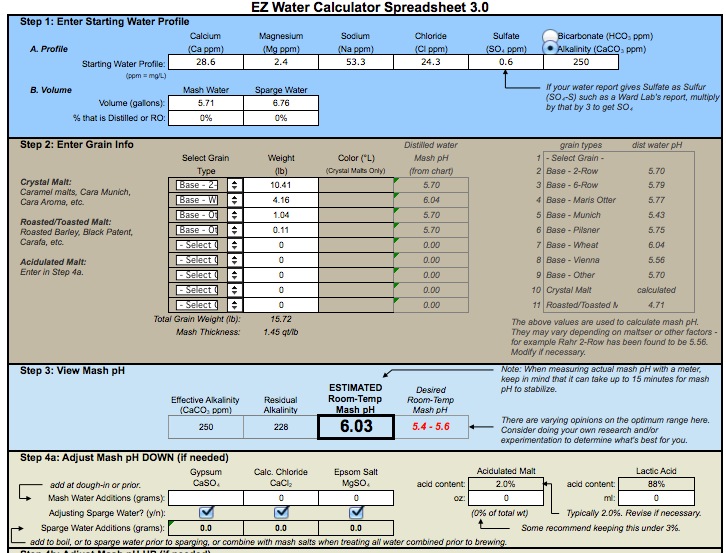So I recently pulled the most updated copy of my local water report and I'm wondering if I should be worried about what I think are relatively high levels of Alkanity, and PH.
PH 7.2 (Says Avg after Adjustment 8.29)
Sodium: 53.3 ppm
Total Hardness CaCO3: 144 ppm
Total Alkalinity as CaCO3: 250 ppm
Calcium: 28.6 ppm
Now I know Vinnie has said Russian River uses Santa Rosa municipal water and I believe they add gypsum but I have no idea if they make adjustments for alkalinity or for PH.
When I plugged my grist into ez water it estimated the PH at 6.03 and a recommended range of 5.4 - 5.6. Even if I used 100% RO water I would only hit 5.7 PH.
My recent batches have tasted great, with no water additions. I only started looking into water chemistry because I felt my IPA's were getting quite the hop profile I thought they would. Up until now all I've been doing is using campden tablets to treat for the chloramine I know is added.
So water chemistry is kind of a weak point currently, and I plan on sending off a sample to ward labs to have an accurate baseline report to go off of. I was planning on adding some gypsum to the boil, but should I now be workied about the alkalinity of the mash, and should I use something like mash 5.2 ph stabilizer?
Water Report:

Ez Water Calc with grist from Wheat IPA.

PH 7.2 (Says Avg after Adjustment 8.29)
Sodium: 53.3 ppm
Total Hardness CaCO3: 144 ppm
Total Alkalinity as CaCO3: 250 ppm
Calcium: 28.6 ppm
Now I know Vinnie has said Russian River uses Santa Rosa municipal water and I believe they add gypsum but I have no idea if they make adjustments for alkalinity or for PH.
When I plugged my grist into ez water it estimated the PH at 6.03 and a recommended range of 5.4 - 5.6. Even if I used 100% RO water I would only hit 5.7 PH.
My recent batches have tasted great, with no water additions. I only started looking into water chemistry because I felt my IPA's were getting quite the hop profile I thought they would. Up until now all I've been doing is using campden tablets to treat for the chloramine I know is added.
So water chemistry is kind of a weak point currently, and I plan on sending off a sample to ward labs to have an accurate baseline report to go off of. I was planning on adding some gypsum to the boil, but should I now be workied about the alkalinity of the mash, and should I use something like mash 5.2 ph stabilizer?
Water Report:

Ez Water Calc with grist from Wheat IPA.



